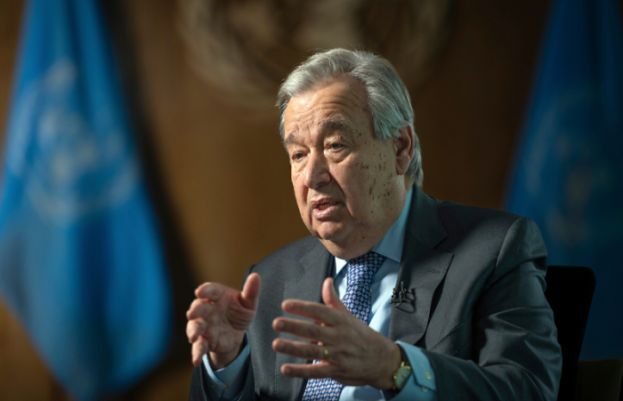
“I will never forget the generosity of countries like Pakistan and Iran, which — for decades — have hosted millions of Afghans in need,” the UN chief said at a Security Council debate on Afghanistan earlier this week.
“At this moment, we need the global community — and this Council — to put their hands on the wheel of progress, provide resources, and prevent Afghanistan from spiraling any further,” he added.
Pakistan’s permanent representative to the UN, Ambassador Munir Akram, told the participants that his country was “doing all it can to help our Afghan brothers and sisters”.
“We continue to care for nearly 4 million Afghan refugees, until they are able to return to their homes,” said the Pakistani envoy while reminding the world that humanitarian assistance alone could not revive the Afghan economy.
“Above all, it is vital to unfreeze Afghanistan’s reserves. There is no legal justification for depriving the Afghan people of their national assets,” he said.
Soon after the Aug 15 Taliban takeover of Kabul, the United States froze nearly $9.5 billion in assets belonging to the Afghan central bank and stopped shipments of cash to the nation to prevent the regime from accessing the money.
In December, the 57-nation Organisation of Islamic Cooperation met in Islamabad and resolved to work with the United Nations to get the frozen assets unlocked.
“This money is critically needed to sustain and stabilise and revive the Afghan economy and to save millions of lives of poor and hungry Afghan children, women and men,” Ambassador Akram said. “This would be the most effective and generous display of solidarity with the people of Afghanistan.”
The UN chief also addressed this issue in his speech, underlining the need to “jump-start” Afghanistan’s economy through increased liquidity. “We must pull the economy back from the brink. This means finding ways to free-up frozen currency reserves and re-engage Afghanistan’s Central Bank,” he said.
Mr Guterres suggested suspending the rules and conditions that constrict not only Afghanistan’s economy, but the United Nations’ life saving operations as well.
“At this moment of maximum need, these rules must be seriously reviewed. International funding must be allowed to pay the salaries of public-sector workers,” he said, adding that the Afghan economy was enduring a bitter winter of its own.
The UN chief warned that the Afghan currency could go into freefall, and the country could lose 30 per cent of its GDP within the year.
This point was also noted at a Jan 24 meeting of special envoys of the European Union, France, Germany, Italy, Norway, the United Kingdom and the United States in Oslo. Taliban representatives also attended the meeting.
In a joint statement issued after the meeting, the US and its European allies said that their governments were expanding relief operations, helping prevent the collapse of social services and “supporting the revival of Afghanistan’s economy.”
The statement said that the participants of the Jan. 24 meeting noted “the importance of increasing cash liquidity and support to the banking sector in order to help stabilize the Afghan economy.”
But this would require the Taliban to develop a transparent, and sound strategy to restore confidence in Afghanistan’s financial sector.
No comments:
Post a Comment